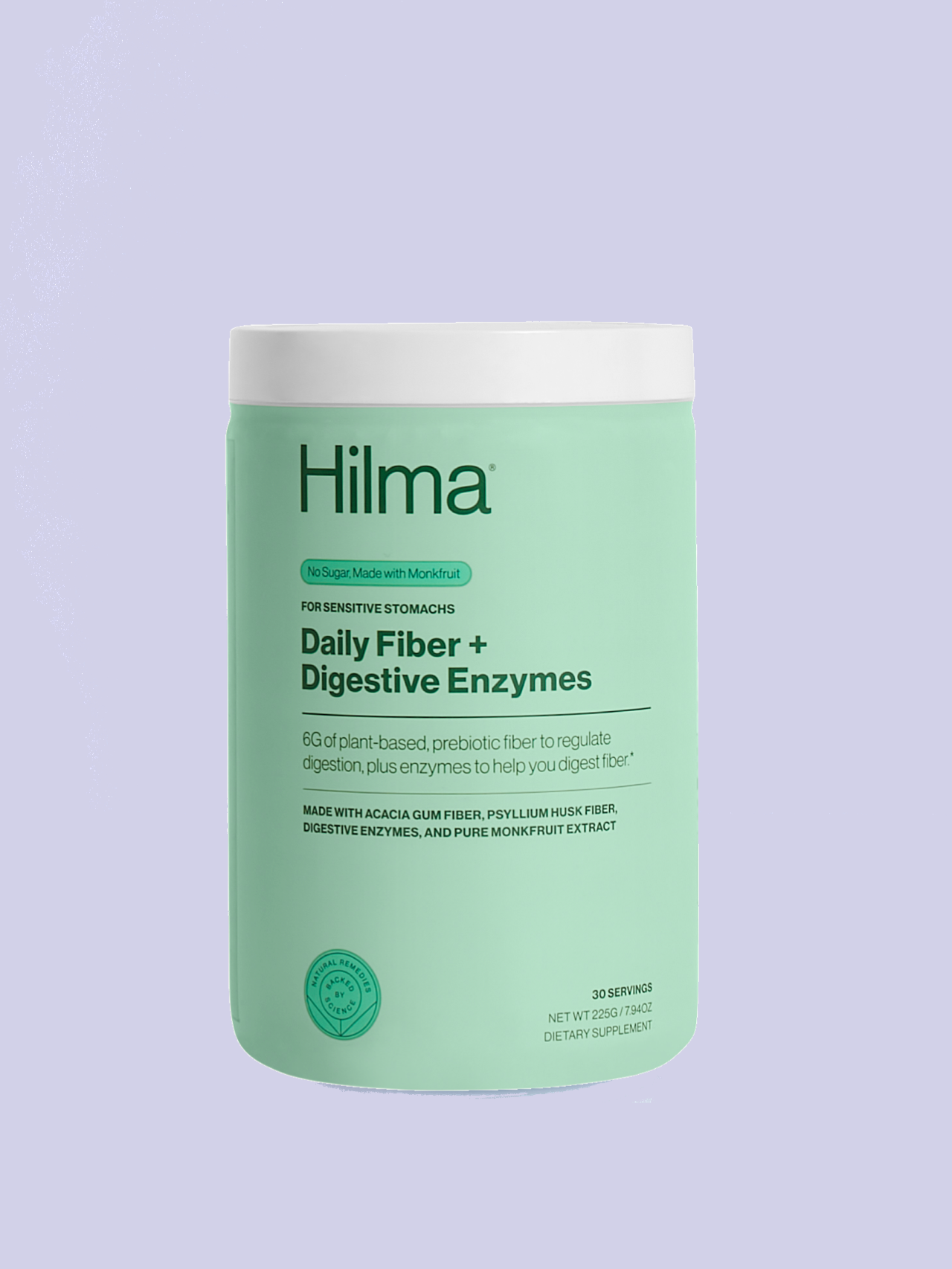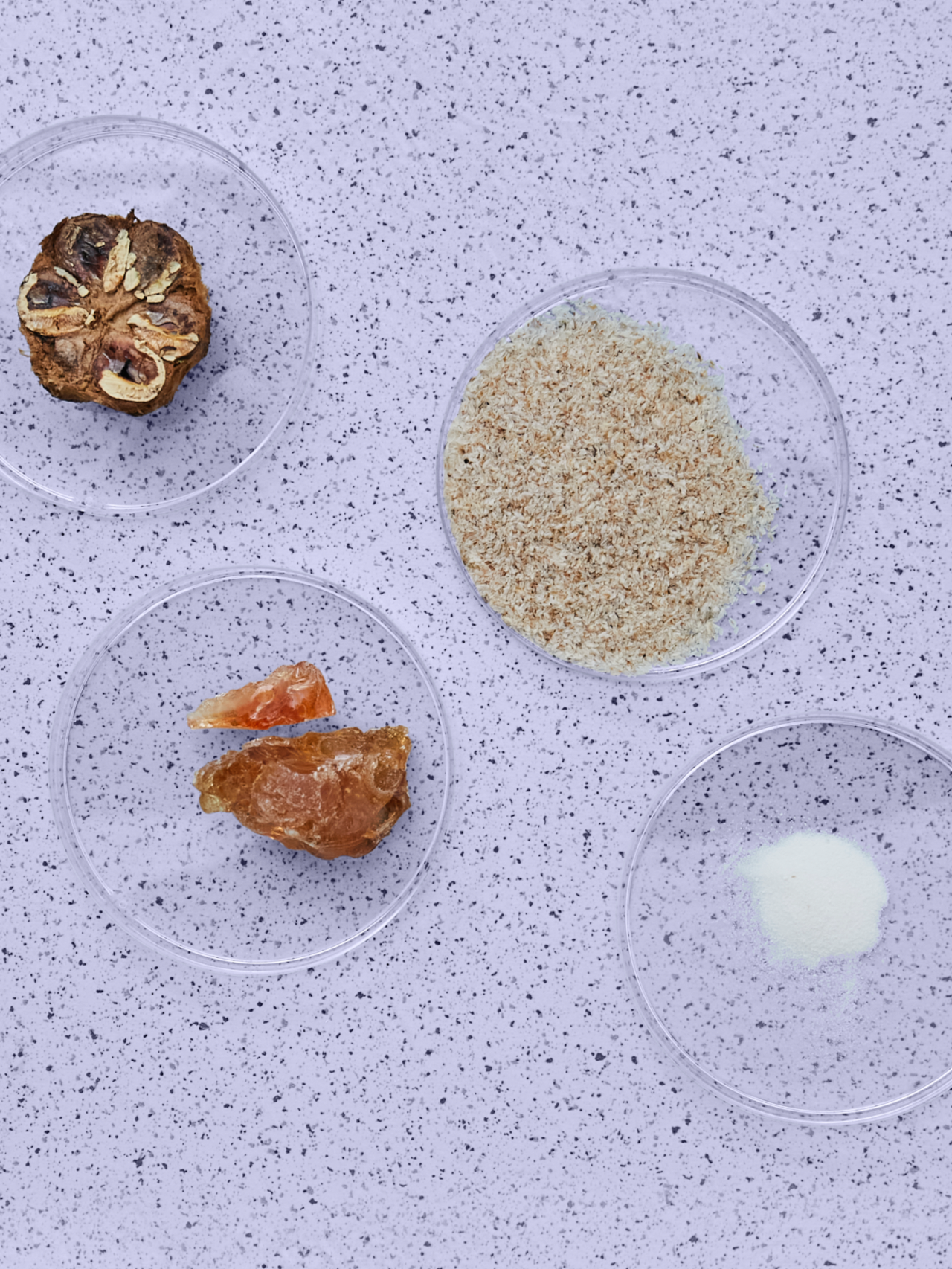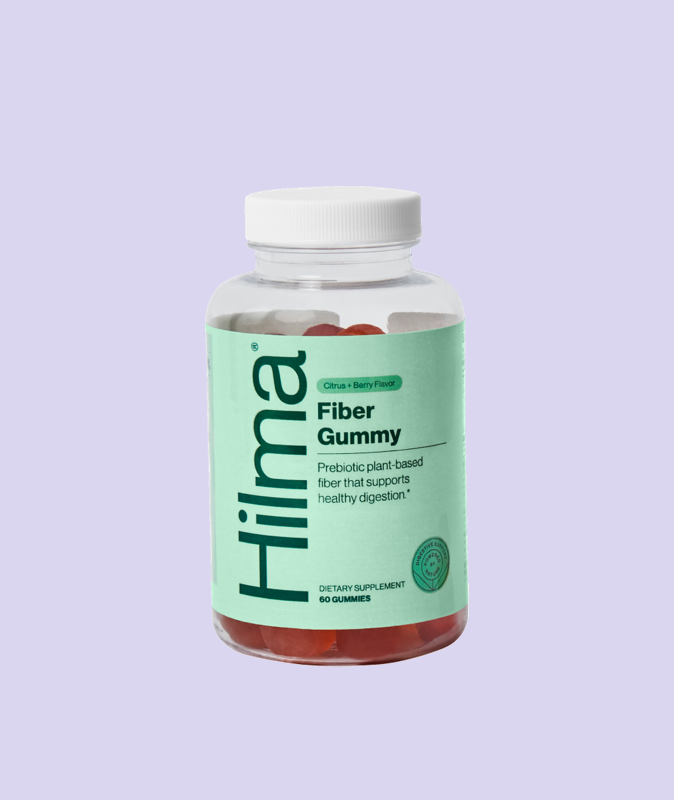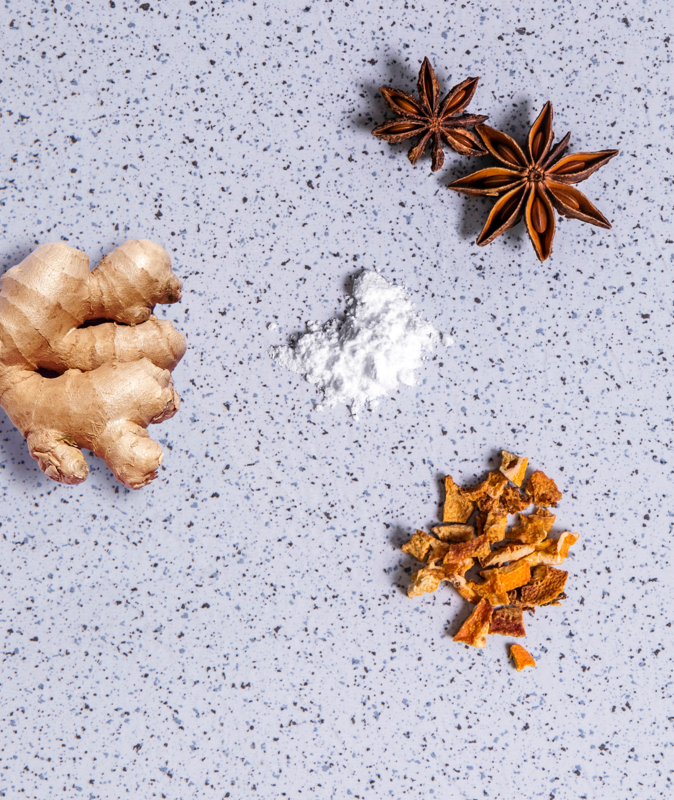
Fiber is the non-digestible component of plants that our bodies require for optimal digestion, but according to the National Library of Medicine, 95% of Americans don't get enough!
In this article, we're diving deep into the world of dietary fiber. We'll explore its critical roles in our health, from regulating digestion to reducing the risk of chronic diseases. So, if you’re ready to discover more about fiber's impact on your well-being — keep reading!
Types of Fiber & Their Functions
The two main types of fiber are soluble and insoluble. Both types of fiber are essential to health.
- Soluble fibers are commonly found in fruits, oats, and legumes. These fibers are water-soluble, meaning that they form a gel within the digestive tract. This thickening helps us feel full, slows the absorption of nutrients, and helps to reduce total blood cholesterol and blood sugar.
- Insoluble fibers are commonly found in whole-grain breads and vegetables. These fibers more physically help encourage movement through our bowels, preventing constipation.
Foods highest in fiber include all types of beans, artichokes, avocados, and berries. Half of an avocado includes the same amount of fiber in a baked potato with skin, one pear, or ½ cup garbanzo beans.
What Are the Benefits of Fiber?
Now that you have a good understanding of different types of fiber and their functions, let's explore the multitude of health benefits that come with a high-fiber diet.
Heart Health
First on the list is the role fiber plays in heart health. A high-fiber diet filled with whole wheat, lentils, and brown rice can help support healthy cholesterol levels.
By binding with cholesterol in the digestive system, fiber helps keep the cholesterol from absorbing into your bloodstream. This can support the body’s natural fight against heart issues, elevated LDL (commonly known as bad cholesterol), and high blood pressure levels — three considerable strides toward heart health!
Weight Management
A diet rich in fiber can be a strong ally in your weight loss journey. Foods high in fiber, like fruits, vegetables, and whole grains, tend to be lower in calories.
Additionally, the feeling of fullness brought on by soluble fiber can curb unnecessary snacking and help regulate your carbohydrate intake. This might invisibly support a healthy weight.
Blood Sugar Control
Fiber, particularly soluble fiber, slows down the process of sugar absorption in your body. This can help maintain lower blood glucose levels, thereby supporting those with type 2 diabetes. Including fiber-rich foods in your diet is a practical, tasty, and natural way to manage your blood sugar levels.
Gut Health
Fiber supports regular bowel movements, which can help soothe bloating and discomfort. From managing constipation to managing the symptoms of hemorrhoids, fiber is crucial for a well-functioning digestive system. Additionally, certain types of fiber like chicory and psyllium act as prebiotics, feeding your beneficial gut bacteria and supporting your gut microbiome.
Other Benefits
Fiber acts as a natural broom for your digestive system, aiding the timely passage of food. Plus, fiber-rich foods are typically high in antioxidants and beneficial fatty acids, thereby contributing to your overall wellness.
How Much Fiber Do You Need?
So, how much fiber do you actually need to make the most of its numerous benefits? For adults, the daily recommendation stands at about 25 grams for women and 38 grams for men, according to experts. Yet, hitting these targets is a common struggle, as many diets fall short in integrating sufficient fiber-rich foods.
How Can You Boost Your Fiber Intake?
Introducing more roughage into your diet doesn't have to be a daunting task. Here are some effective ways to make sure you’re getting enough fiber each day:
Morning Fiber Boost
Kick off your day with our Fiber Gummy — a tasty, convenient way to boost your morning fiber intake. Packed with prebioticchicory root fiber, these gummies blend seamlessly into your breakfast routine, helping you meet your daily fiber goals effortlessly.
Snack on Fruits and Nuts
Swap out less healthy snacks for options like almonds, pears, apples, or raspberries. These snacks are not only packed with fiber but also keep you satiated between meals.
Incorporate More Vegetables
Add vegetables like broccoli, carrots, or Brussels sprouts to your meals. Whether you include them in stews, salads, or as side dishes, their high fiber content can make a big difference in your diet.
Choose Whole Grains Over Refined
Whenever possible, select whole grains such as brown rice, whole wheat, or barley over refined grains. This simple switch can significantly increase your fiber intake and provide additional nutrients.
Explore Legumes
Beans, lentils, and chickpeas are excellent sources of fiber. Incorporate them into your meals several times a week — they're versatile enough to be a part of soups, salads, and main dishes.
Use Fiber Supplements Wisely
If you find it challenging to meet your fiber needs through diet alone, consider a fiber supplement. For example, adding a scoop of Daily Fiber + Digestive Enzymes to your smoothie can gently support your digestive health without overwhelming your system.
Stay Hydrated
Drinking plenty of water is crucial when increasing your fiber intake, as water helps fiber pass through the digestive system more easily, reducing the risk of cramping or bloating.
Make Smart Swaps
Replace white bread with whole-grain versions, use whole-wheat pasta, and choose brown rice over white rice. These swaps not only increase your fiber intake but also enhance the flavor of your dishes.
Plan Ahead
When doing your grocery shopping, plan your meals around high-fiber foods. Preparing a meal plan can help ensure that you include a variety of fiber-rich foods throughout the week.
By integrating these strategies into your daily routine, you can effortlessly increase your fiber consumption. Remember, boosting your fiber intake doesn’t just improve your digestive health — it contributes to a healthier, more balanced life. You got this!
Sources:
Dietary fiber: Essential for a healthy diet | Mayo Clinic
Fiber | The Nutrition Source | Harvard T.H. Chan School of Public Health
Fiber: The broom that sweeps your digestive tract clean, balances blood sugar | Sioux City Journal
Dietary fiber | Better Health Channel
Probiotics and prebiotics: What you should know | Mayo Clinic





